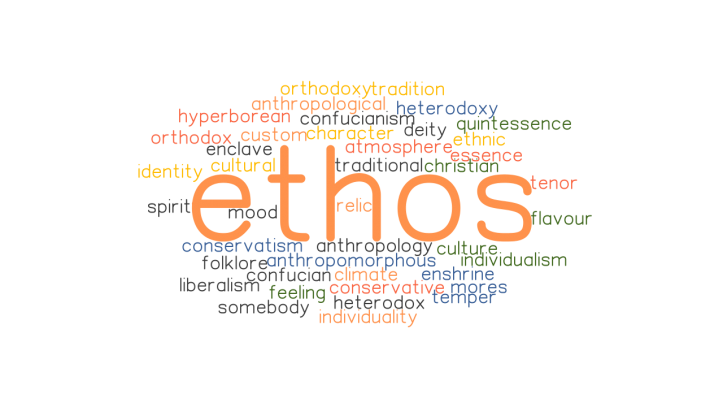What is Ethos? Ethos is a Greek term meaning “worthiness” which is used to describe a set of guiding principles or attitudes that characterize an ethnic group, community, or political ideology. In particular, the Greeks used ethos to refer to their power of music to affect behaviors, emotions, and even moral behaviors. Thus, it has become a core concept of aesthetics, wherein a work of art or architecture functions as an expression of ethos. As such, it is not simply a technical issue, but rather a philosophical one.
An aesthetic ethos is the value an art or architecture places on being humane, peaceful, and rational. In contrast, an ethic of force is based on the ability of a speaker or writer to compel listeners or readers to respect his or her authority. Aesthetic values and ethics are related to communication, and the communication process is called ethos. Aesthetics and ethics therefore are tightly intertwined. They therefore are important elements of any public speaking class or workshop.

One of the key skills for a public speaker is to use good faith as a guide in deciding what is right and wrong, and how they will act as individuals within a social setting. Good faith is not a vague term. It is quite specific, as it refers to a speaker’s ability to decide what would be best for an audience, as well as how they will act in response to that decision. This skill is important because ethical conduct requires courage, as well as the ability to balance what is commonly accepted by various groups of people. It is up to the audience to decide what is morally right and wrong.
What is Ethos? The idea of ethics and ethos can be traced as far back as the ancient Greek philosophers who spoke of how man should live by choosing the good over the bad. However, ethical conduct and behavior do not have a fixed definition. Every situation is unique, so each and every ethical dilemma are a personal matter.
The value of ethos is an issue of ongoing debate and some would say of continuing evolution. However, most people agree that it is the belief that, in the pursuit of morality, a person acts in accordance with what they consider to be the moral or ethical values of that situation, which is determined by both personal and external factors.
The concept of ethos can be traced back to ancient Athens, in the earliest years of the Common Era. Socrates, the teacher of the classics, was controversial in that he did not believe in any gods, or any ultimate power. Instead, he spoke about how human knowledge could be tested by taking part in philosophical debate. He used several different examples to explain the concepts behind what he was discussing, including the example of Odysseus when he returned from the Trojan War.
Socrates argued that we were all subject to an invisible authority, which he referred to as ethos, which was a standard or norm that humans were supposed to live by. The authority of the audience was always more important than that of the teacher, since the former would influence not only the student but also the teacher himself. Therefore, one could trust the audience more than the authority of the teacher.
In modern debates, those who defend a particular ethical code are often accused of acting in accordance with the will of the mob, or the majority of society. In the end, it is the decision of the audience whether they should believe in something or not. The authority of ethics can therefore be seen as nothing more than the will of the individual, however powerful that authority may be. In essence, then, ethics are a matter of faith and not of reason. But can there be a reasonable agreement on the facts and ideas behind what is ethically right and wrong?